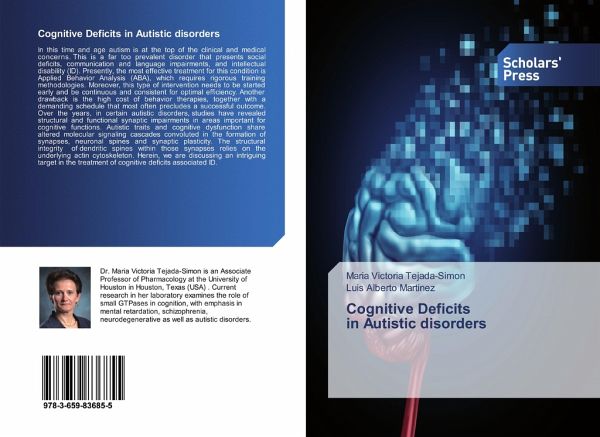
Cognitive Deficits in Autistic disorders
Versandkostenfrei!
Versandfertig in 6-10 Tagen
40,99 €
inkl. MwSt.

PAYBACK Punkte
20 °P sammeln!
In this time and age autism is at the top of the clinical and medical concerns. This is a far too prevalent disorder that presents social deficits, communication and language impairments, and intellectual disability (ID). Presently, the most effective treatment for this condition is Applied Behavior Analysis (ABA), which requires rigorous training methodologies. Moreover, this type of intervention needs to be started early and be continuous and consistent for optimal efficiency. Another drawback is the high cost of behavior therapies, together with a demanding schedule that most often preclude...
In this time and age autism is at the top of the clinical and medical concerns. This is a far too prevalent disorder that presents social deficits, communication and language impairments, and intellectual disability (ID). Presently, the most effective treatment for this condition is Applied Behavior Analysis (ABA), which requires rigorous training methodologies. Moreover, this type of intervention needs to be started early and be continuous and consistent for optimal efficiency. Another drawback is the high cost of behavior therapies, together with a demanding schedule that most often precludes a successful outcome. Over the years, in certain autistic disorders, studies have revealed structural and functional synaptic impairments in areas important for cognitive functions. Autistic traits and cognitive dysfunction share altered molecular signaling cascades convoluted in the formation of synapses, neuronal spines and synaptic plasticity. The structural integrity of dendritic spines within those synapses relies on the underlying actin cytoskeleton. Herein, we are discussing an intriguing target in the treatment of cognitive deficits associated ID.












